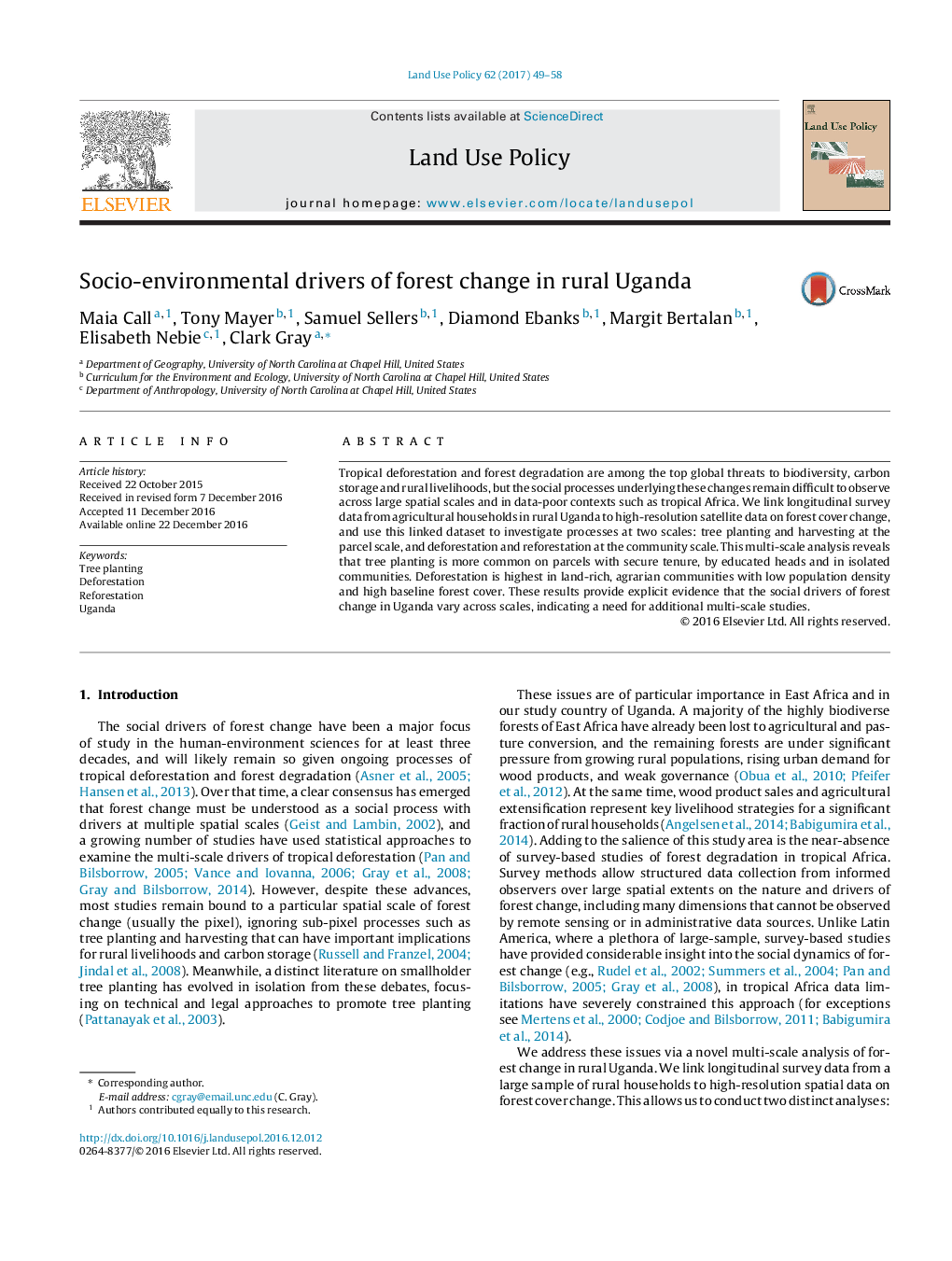| Article ID | Journal | Published Year | Pages | File Type |
|---|---|---|---|---|
| 6461178 | Land Use Policy | 2017 | 10 Pages |
Tropical deforestation and forest degradation are among the top global threats to biodiversity, carbon storage and rural livelihoods, but the social processes underlying these changes remain difficult to observe across large spatial scales and in data-poor contexts such as tropical Africa. We link longitudinal survey data from agricultural households in rural Uganda to high-resolution satellite data on forest cover change, and use this linked dataset to investigate processes at two scales: tree planting and harvesting at the parcel scale, and deforestation and reforestation at the community scale. This multi-scale analysis reveals that tree planting is more common on parcels with secure tenure, by educated heads and in isolated communities. Deforestation is highest in land-rich, agrarian communities with low population density and high baseline forest cover. These results provide explicit evidence that the social drivers of forest change in Uganda vary across scales, indicating a need for additional multi-scale studies.
